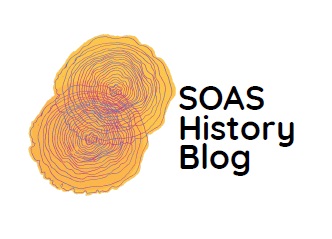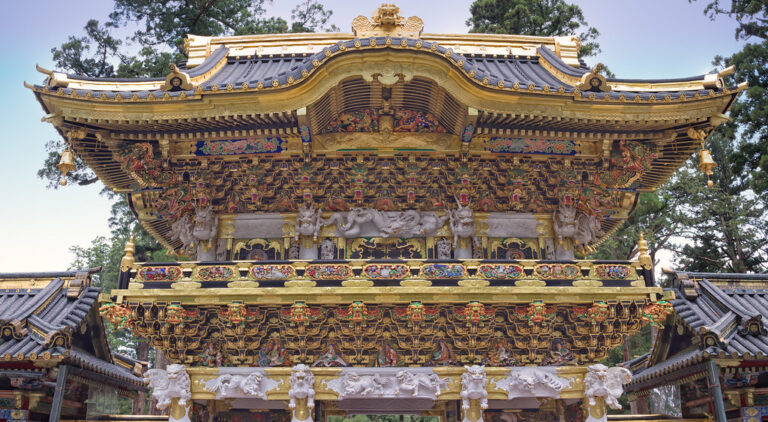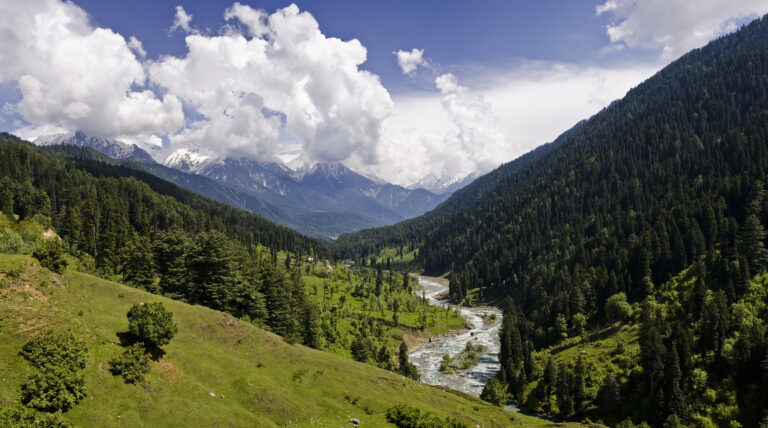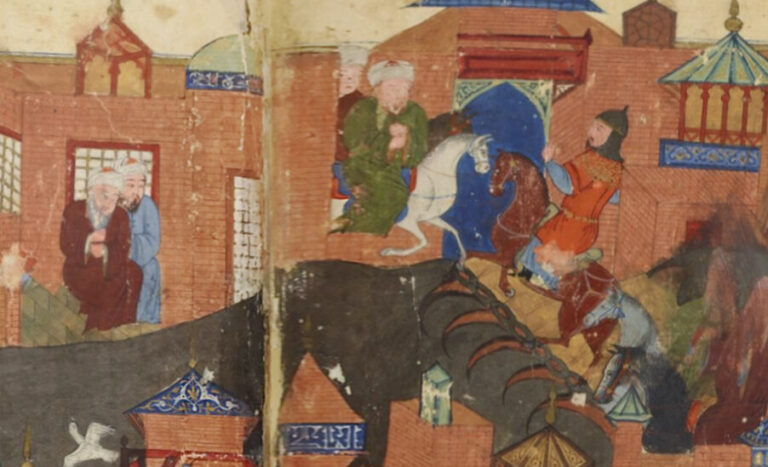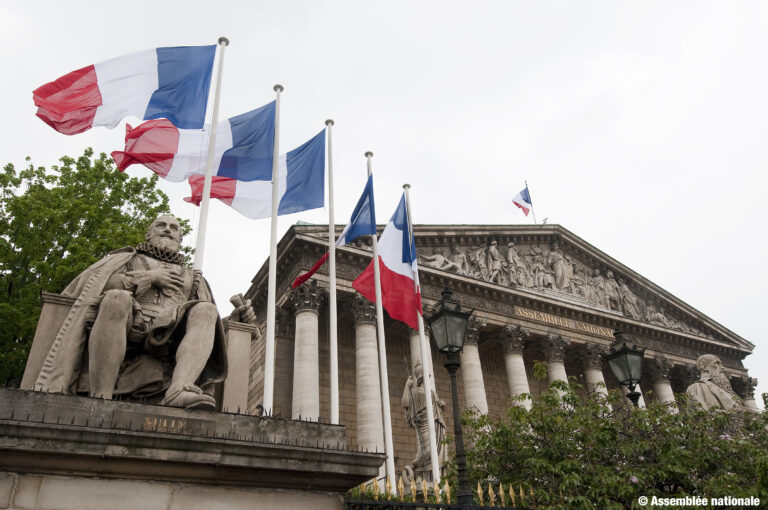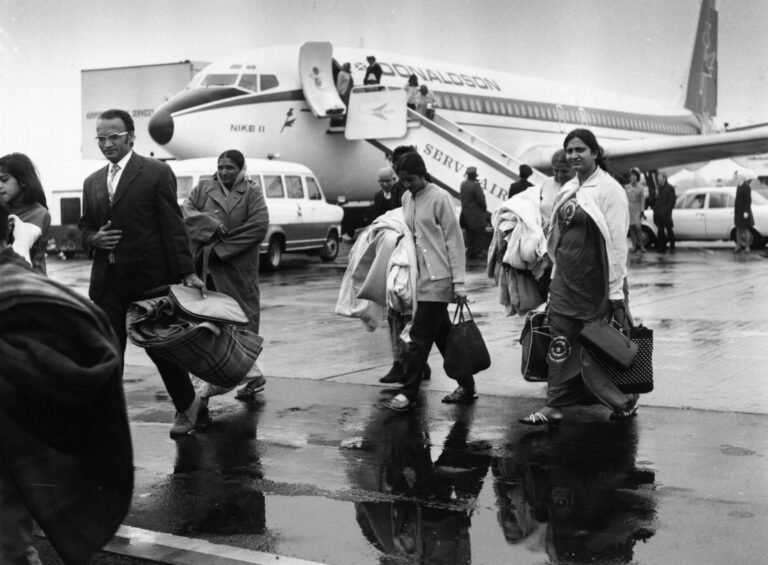SOAS History Blog Podcast 11: Poetic Knowledges and West African Histories [Live Recording Event]
More about this episode

Véronique Tadjo
Panellist
she/her
Véronique is an internationally acclaimed writer, poet, artist and academic who’s recent titles include In the Company of Men and Far from My Father.


Anisah Islam
Poetry performer
she/her
Anisah recently completed a BA in Global Liberal Arts as SOAS and has written various articles for the SOAS Spirit.

Awino Okech
Panellist
she/her
Awino is Reader in Political Sociology at the Department of Politics and International Studies SOAS and director of the Feminist Centre for Racial Justic.

Ana Nenadović
Panel moderator
she/her
Ana is currently Lecturer in Global Liberal Arts at the Department of History, Religions and Philosophy at SOAS and an editor for the SOAS History Blog.
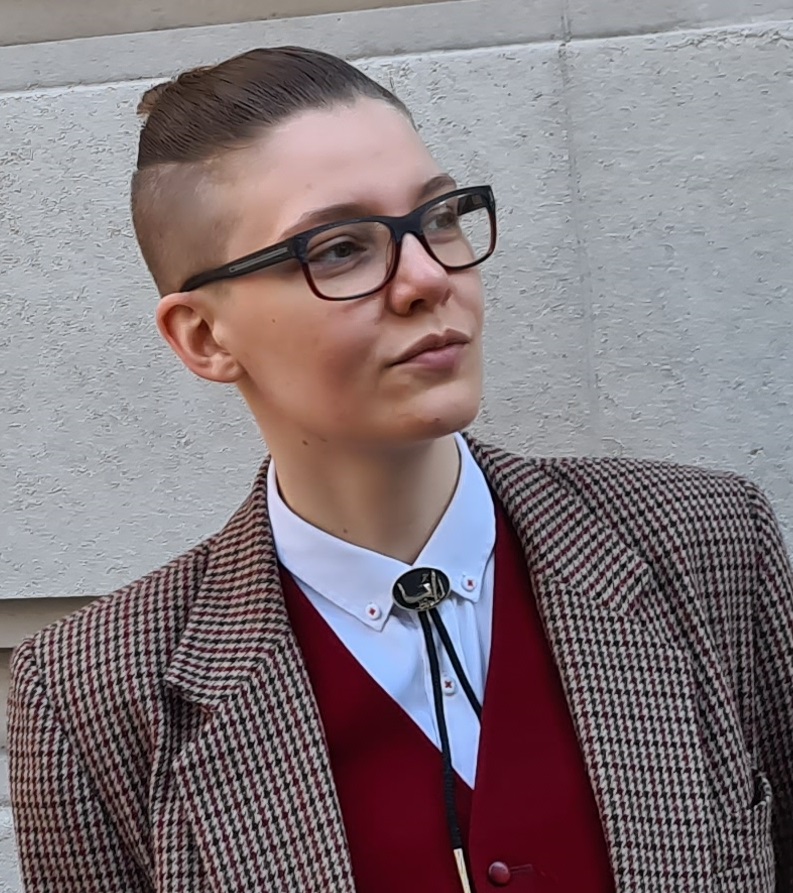
Recitation and transcription of Half Way was approved for use by Véronique Tadjo. Use of Images of Africa for this event and associated podcast production was approved by Véronique Tadjo.
Podcast Transcript
Ellan (intro): This is a SOAS History Blog podcast. To read and hear more content from the SOAS History Blog, go to blogs.soas.ac.uk/soashistoryblog.
Ana: Hi, good evening everybody. Thank you for joining us tonight for this live podcasting event and panel discussion with Véronique Tadjo, Awino Okech, and Claire Nicolas. Tonight’s event is organized by the SOAS History Blog and its editorial team. Andrea Janku is here – she’s a senior lecturer at School of History, Religions, and Philosophies at SOAS. Ellan Lincoln-Hyde, who holds a PhD from SOAS and myself, Ana Nenadović, a lecturer at the School of History, Religions, and Philosophies. It is my pleasure now to introduce our three amazing speakers and our performer.
Véronique Tadjo is an author, artist, and honorary professor at the University of Witwatersrand in Johannesburg, where she lived and taught for several years. She was born in Paris and grew up in Abidjan, Côte d’Ivoire. She holds a doctorate in Black American Literature and Civilization from the Sorbonne Paris Quatre. Her novels have been translated into several languages including German, Italian, Spanish, Arabic and Japanese. Awino Okech is a reader in Political Sociology in the Department of Politics SOAS. Additionally, she supports the delivery of SOAS racial justice commitments as Associate Director for Equity and Accountability. Claire Nicolas holds a PhD from Sciences Po, Paris and Lausanne University. In her forthcoming book, Une Si Longue Course published by Presse Universitaire de Rennes, she highlights the role played by sporting activities in transforming social categories such as race, gender, and age in Ghana and Côte d’Ivoire throughout the twentieth century. And finally, I’d like to introduce Anisah Islam. She will perform later for us and read a bit of Veronique’s poetry. She’s a global liberal arts student here at SOAS in the School of History, Religions, and Philosophies.
So Veronique on your website, veroniquetadjo.com, I’ve seen that there are lots of comments, short comments on storytelling and stories which I really enjoyed. And it’s actually one of these comments that inspired my first question. On the website you can find the statement, ‘there’s a story in each of us’. My first question to all of you, and if you’d like to start, Véronique, which are the stories you aim to tell or you tell in your projects, and how do you want to tell those stories?
Véronique: Thank you. Thank you very much. I’m extremely happy to be at SOAS and to be with you. And thank you for coming, for those who are here. I, I do, I do think that there is a story in, in, in all of us in the sense that we constantly tell stories when we try to identify who we are when we are searching for a certain truth: when we trying to find our way in the world when we are getting lost, when we finally find some sort of a path, when we meet people. In fact, in the end, that’s what I’m trying to do. I’m trying to talk about life as I see it because we all see the world through our eyes. And if you’re a woman, for example, you see the world through the eyes of a woman. If you live in Africa, you see the world through the continent. So it, I, what I like about traveling and I am a product of traveling because my father was from Cote d’Ivoire and he met my mother in, in France, in Paris, is that it opens your, your mind to different experiences.
And, and then you, you learn, you learn. I have this idea that the world is an island somewhere in the cosmos and the best thing to do is to try to discover as much as you can and learn. I think we never cease to learn. And I think until the, the end, and if we stop learning, I think that’s, that’s Yeah, that’s a terrible thing. So there’s always something to learn and that’s what I’m trying to, in a way, pass on in, in, in my books.
Awino: Thank you. And that’s a really wonderful way to begin. What stories do I aim to tell? I think I aim to tell stories of resistance, to think about how… folks who are marginalized by societies for a range of reasons, whether that is for questions of gender, race, or sexual orientation, are pushing back, are finding and carving out spaces to resist.
I tell stories of dissent, so the ways in which the spaces of protest and solidarity function in powerful ways across our societies to challenge how power is organized, constructed, and distributed across our societies. And that in listening to those stories of dissent, we are actually listening to alternative ways of governing our societies and organizing power relations.
I tell stories that allow us to think about marginalization. So if you think about you know, whether you’re talking about bell hooks, Ngũgĩ, whichever one we choose to use, which are the stories on the margins, and making the margins the center. So those are the stories that I tell. How do I tell them?
I think because of the nature of my work today, I focus a lot on the written word. But one of the things that have been thinking about, and not in the creative way that Véronique does it, but you know, in sometimes which can feel very stiff academic forms of writing. But one of the things that I, I am wanting to return to in the next phase of my academic life is, is theater. I, I lived a very full life in, in the sort of performance world. And I want to bring back those kinds of alternative, different ways of speaking to each other back, into my storytelling, if you will.
Ana: Thank you, that’s wonderful. And you, Claire?
Claire: I like to tell stories which are kind of unexpected. For instance, my work is on sports and everyone assumes when I tell people I work on sports in Africa they will always assume, ‘oh, male football, right’? No, I am interested in girlhood, in how they played with gender norms, with racial organizations, in racial norms in colonial settings, and I like to put to the fore what is unexpected, what is a bit on the side. And it really echoes with what you said about marginality and putting the margins to the center. And even if it might seem a bit trivial, because sports is not necessarily a very important matter, I believe it’s also important to recognize this part of the daily lives of people, that they have fully lived lives, which is not necessarily always serious, and to recognize that about undermined and marginalized actors.
Ana: Thank you. it’s really interesting because you mentioned different stories, different voices, polyphony, all of you. And looking at your most recent book in English, Véronique, In the Company of Men, here you include various voices to write the stories of Ebola in West Africa. And one of those voices is also the Baobab tree. And I’d like to read a paragraph to introduce my long question.
I’m a Baobab, the first tree, the everlasting tree, the totem tree. My crown touches the heavens and offers the world below refreshing shade. I yearn towards soft, life sustaining light, that it might, may brighten humanity, illuminate darkness, and soothe fear.
I really enjoyed how you also include non human voices and lend your voice to that non human voice. So, my question to the three of you is, is your art and scholarship, whose voices do you aim to include and make more visible? And how do you negotiate a balance between your voices and those voices you aim to include?
Would you like to start, Véronique?
Véronique: Well, I mean, we, we, we are all faced with a huge environmental crisis. And when I think about the environmental crisis, I include epidemics and pandemics because they’re part of the environmental problems. People tend to divide them, tend to view health on one side and the environment on the other side. And I think it’s it’s a way of, should I say trick, it’s tricking us, so that we don’t see clearly what is happening. And so, when I became very interested in in the Ebola epidemic in West Africa, that is, in, in Guinea, Sierra Leone, and Liberia I, I went into a lot of research, and it became very quickly evident that the epidemic was grounded in deforestation, in the massive deforestation in West Africa.
So it kind of opened my mind and when I decided that I would write a book, I thought this is a very, very, very, difficult subject. It’s a very sensitive subject. How am I going to proceed? And so I thought I’ll take from the richness, the cultural richness of West Africa, meaning I’m going to ground my story in oral traditions. And the lovely thing about the… fantastic thing about oral traditions is that there is enormous freedom for creation, for a creative person. That means if you look at oral traditions you can bring in poetry, you can bring in music, you can even bring in political discourse, you can bring in history… and animals talk, and nature talks.
So I had what I needed. And, and then I was able to proceed in confidence. That’s why Ebola is able to give his point of view on the epidemic. And the same with the bat who was wrongly accused of being the cause of the virus and, and human beings, of course. And the tree is the main character, because it is the tree, in fact, that tells the story, because I think that trees have something very noble. Some of our trees are ancient, and the Baobab tree is a, is a wonderful tree.
Ana: Thank you. Who would like to jump in?
Awino: Yeah, sure. So, you know, obviously I’m, I’m a feminist. And then I’m a feminist academic. And why I lead with that is because as a feminist and a feminist academic, I don’t tell other people’s stories; I tell the stories that also matter to me. So any of the research that I’m doing is not about the other. That other is me. I’m very invested in issues that have a direct impact on me, whether that’s thinking about violent extremism and its sort of impact on my own country, Kenya, but how the discourses that have surrounded violent extremism have morphed in rather interesting ways that are not productive to resolving some of the structural issues that generate the problem. So really to, just to emphasize the fact that the stories I tell are as much about me as they are about the research participants that I engage with as part of broadening my understanding of the impact of some of these issues
Ana: Thank you. And you, Claire?
Claire: I do believe it’s very… it’s a very complicated question for me… because I’m a historian, so very often I work with archives, and I do not have the possibility to engage with the people who used to live, back in the day, in the time and I… and it’s very difficult way of writing because you always end up deciding which quote you’re going to include, which voice you’re going to have within your writing. And I love the world you used ‘stiff’ to, to talk about academic writing, which has, I believe is quite a true way of putting it. And because you always make the final call, right? You’re the one writing it. You’re the one submitting the paper to an academic journal. And I struggled with that.
I do believe for me, so far the way is to also engage with other forms of writing and in dialogue, like poetry, as you write, or novels, and so on, and to also not only be in a conversation with other academic writing, because that would be too narrow. And I find it’s a way of, you know, bypassing it, but it’s something I still struggle with, to be honest.
Awino: If I could just pick up on the point about being in dialogue with other forms of writing because I think that’s really powerful. So I’m, for instance, quite fascinated by people who do archival work because I think there’s quite a lot there in terms of how you look back at the past and use that to make meaning of the present, for instance. But that can only happen if you are in dialogue across methods, in dialogue across disciplines, in dialogue across modes of thinking. And that, I think, is a really important thing for academics to do as part of the process of breaking out of that stiffness. Because if we are stuck in our little disciplines, if we are unable to see what else, you know, folks who are writing in literature, folks who are thinking about performance arts are talking about, then we are limiting the windows through which we can understand the world.
Véronique: I think also that these categories are shifting. Because… I remember I really relied on research to write my book. And I always was grateful to, to the fact that I was an academic at some point and that I could use that methodology to write something which sounds like, completely creative, but which is quite hard work. So yes, it’s interesting. I think we ‘re moving towards something much more flexible when we can feed each other and enhance the writing I would say.
Ana: And I also would like to add to that, that even in academia, which is sometimes very slow to open itself to different forms of knowledge or archives, even in academia, there’s an acknowledgement recently that there are different forms of archives; that an archive doesn’t have to be a dusty room with old documents. Which archives have you used, or what would you consider archives you use in your work?
Awino: So if I take an expansive interpretation of archives, then I think I’m… One of the areas of work that I’ve been deeply fascinated with, and this is not what I’m doing, but it’s in terms of how I engage with people who do this work, which is the sort of body of work that a lot of queer organizations across the African continent have been doing. People call it documentation. I see that as archiving, right? Telling the story of queer life in its mundaneness and in its complexity today. That is a process of building an archive. That is a process of telling a much more complicated and complex story about queerness in Africa. so that is material I’ve engaged with, yeah.
Véronique: Testimonies are also very, very important. Testimonies of very, very different people -survivors, for example, or people who have been involved in fighting a disease. I think that today we, after what has happened with COVID- 19, we are very, very, very aware of the importance of archives and and we’re trying to look at what we’re trying to do. We’re trying to understand exactly what happened during that period, and where did we go wrong? Or what did we do right? Because it’s a question of life and death. And archives can really help us to understand how to progress.
Claire: I believe having this kind of expansive understanding of what an archive is, is also useful to understand what is the colonial archive, like the… very classical one to see it as a, something which is alive, which has a story also or a story of power, of domination. And also to interact with the place of the archive as some as also something where you could encounter violence and the archive also tells you a story and you tell stories to the archive. And it’s also a conversation you have when you’re also sitting at the table looking at dusty papers. You suddenly turn a page, and then the story you read is completely horrendous. And then you have also to make sense of it and to, to try to fight it.
Ana: And closely connected to this idea or the question of archives is also the question of knowledge. What do we understand as knowledge? Who’s got power or authority over knowledge? And it’s often universities in particular in the global north who, that claim that authority and they claim the power to create and translate knowledge into archives.
So to your understanding, what is knowledge? How can we broaden our understanding of knowledge? And what is the impact you would like to make through your artistic practices and your scholarship in terms of defining or redefining knowledge?
Awino: So let me say three things. I think we all know things by virtue of living and being in the world. We all have life experiences that we bring to the world. There’s a big distinction between the things you know and how you then systematize that to something you call… something that you can generalize and, and make an argument that on the basis of this, we can make certain assumptions about ‘x’ issue.
Now this is where I get into trouble with a lot of people, right? Which is the idea of honoring lived experiences and that being absolutely central or important. But there’s a next step, which is about the broader systematization, because lived experiences can also be very atomized, right? The way I experience a particular issue is deeply dependent on my class, on my race, on my gender, and how all of those things come together in my navigation of the world. The process of systematization is the process of knowledge building, knowledge production.
Now, you are right that sort of grounding theory in particular, right? You know, the thing that is often distinguished is that those of us who come from Africa in particular, I’ll speak as an African, we, we tell stories. We are there to come and give testimony. We are there to produce a very particular form of knowledge that is not seen as real knowledge. Those are the stories that are then collected, then somebody goes and turns them into the grand theory. The people who turn them into that grand theory often tend to sit in the global north.
And this is my second point, that I often have a big issue around. To recognize the importance of testimony, story, orality, and to also recognize that in the reduction of us as only being storytellers, as people who only give testimony is a move of power, right? There’s a tussle of power that is happening there. And that our job, whether we sit in the academy or sit elsewhere, but recognize the value of what it means to think about life in very complex ways is to push back against this power that sequesters certain things as not being scientific as things that we only add to build theory. So to challenge that, the testimonies, the storytelling, be it as only, as being non scientific, and to ensure that for those of us who live in other worlds, who also think that particular ways of transferring knowledge matter, that our voices are present in that place, right?
As an African, to close: I do not have the benefits, I do not have the, the luxury of not writing about Africa. Because if I leave that space, somebody else is going to occupy it, and the person who’s occupying it is not always an, an African, right? So unfortunately I don’t have that luxury. I cannot wake up today and say I want to write about the EU and, and write about Germany, even if that was the thing that was most interesting to me. Because if I exit the space of Africa, somebody else is going to occupy it. And again, that is a fundamental question about power, that for some of us, we don’t have the luxury of writing about the next thing that excited me, that morning.
Véronique: I think yes, it is is, it’s right. We have to tell our own own stories, but at the same time we, we are in a world and there’s many things happening, and it’s a multicultural place, so sometimes we cannot not take into account what is happening elsewhere. Because, in fact, we are very, very influenced… when we live in Africa we can see how influenced we are by by the outside world. I mean, today, a young person living in in Africa is constantly I mean, when they can afford, it is constantly on the Internet. But even when they can’t afford it. Because you go to a remote village and people are on their phone. So it’s quite amazing. It’s become, in a way, a small place. But sometimes I think about knowledge even within our own world, within the African continent, and I see it as a dangerous thing, if it’s not seen in a more democratic way.
Because knowledge can really create differences and divide people. And what happens when knowledge is not shared is that you have different conversations happening at the same time. And people don’t talk to each other. And suddenly something happens -you know, there’s an eruption, there’s a social social eruption- and you say, where did it come from? It’s just because people don’t necessarily value each other’s knowledge. So I think we have a lot of work to do also and to, yes, accept more, more difference in terms of what knowledge we can learn from.
Claire: As for me, I’m French, so I come from a deeply colonial country, and I also – just like you said, as an African, it was important for you to talk about that- and as a French person, I believe it’s kind of my job to also teach my fellow French people what happened in our history, and what happened … to teach our colonial history. And that is also, as a white woman, as a white French woman, it’s also part of my job not to leave this to just have only Black scholars to do that job. Because it’s a very difficult job, especially these days where we have the far right rising in my country. And… I believe it’s also important to be there to do that part of the job as well, to be on the line as well. And that’s why my work is about this issue of colonial history, because we have all these discourses about… these colonial nostalgia discourses in France, which are very strong about Algeria, of course, but at large. And I do believe it’s important as a, I don’t know, as a citizen to do that job as well.
Ana: Thank you. So you’ve already mentioned challenging times, the rise of the far right, gendered forms of oppression, the climate crisis… How can we write and produce knowledge in these difficult times and what are the contributions we can make as artists and scholars, in your opinion?
Véronique: I think the first ingredient is to be honest. Is to be honest with yourself and as much as possible with other people. with, with your, maybe your, your future readers or just people around you. Be honest. We can’t be everything. We can’t do everything, but I think that if we have a passion and if we, if we believe in saying what could bring some change then, we have to do it fully. It’s difficult because these are difficult times and you know that you’re taking a risk, you know, for example, there’s this cancel culture that is looming over us. There is also the fact that democracy has been challenged in many ways. There’s this culture of ‘post truth’, I think that’s what we say. It’s just it’s very difficult to navigate through all this. But I think at the end of the day you do what you have to do and you try to do it as honestly as possible.
Awino: Yeah, Véronique, you make a very important point about standing in your truth. That is how I travel through life. But one of the things that I’ve also been struck by is the question of cost and risk. So a few days ago, I was in Kampala, Uganda, and for those of you who will be listening to this at this particular moment, the government of Uganda has just passed this anti homosexuality act that has a whole range of horrific sanctions based on suspicion rather than fact around what it means to be queer and all of that. And in speaking to academics who are seated in that audience, part of what they communicated was, we can’t speak about these issues because that is your job that is gone, right? So the real fundamental questions of academic freedom and how universities protect academic freedom in, in the broader sense of the word.
And so it struck me that the question of cost and risks in this moment that we’re living is a real one. And that even when we stand in our truth, even when we are being honest and brave, there are real material consequences for when you’re living in a country with such a law for whether you will get home or not, whether you’ll have a job tomorrow or not. Even for me, who was busy opening my mouth, I know I remember spending the next 24 hours thinking, will I get out of this country okay? And, and what will that mean? And so there’s a larger conversation that universities, as the containers or the spaces where we work, but also the broader academic community needs to think about in relation to building in, in very tangible ways -I’m not talking about this in an, in an ephemeral way- building real communities of care. Because I think the question of protection and risk is a real one. It’s a real one for all of us at this moment.
Claire: Oh, it’s very important not to stay in our bubble because it’s very tempting, especially right now, because of everything which is happening to go back into our room and to write stuff and never to talk to anyone again. I do believe it also calls for questioning one’s self, because we could have this temptation not to be in solidarity, not to stand in solidarity, not to… also to engage with people in a problematic manner. And I do believe it’s very important to always question one’s self, do I did it right? …in this kind of honesty perspective that you mentioned, Véronique, as well. And for me, it’s something which is very important to me, like when I write, when I work, to always question. And to always ask myself, is it the right path? And if I did it wrongly before, which always, of course, happened to do it differently for the next step and to always move on.
Awino: And I would add just to pick up on the point you’ve raised is that we must reflect on ‘what does it mean to stand in solidarity’? Because I think this moment requires us to think a lot more seriously about that beyond tweeting, ‘I’m in solidarity’. What does that mean in real terms when people’s lives are under threat?
Ana: Thank you so much for this. And to pick up on the, on the care aspect, I now want you to take care of yourselves and listen to poetry and enjoy that safe space that poetry can sometimes be. Anisah?
Extract of Half Way by Véronique Tadjo, performed by Anisah Islam:
The first path
You cannot leave without losing some blood. You return, heart full of good intentions. Then, your eyes rove over the town and you stumble, falling hard. You must start again.
You want to reach others, those you’ve remembered, over there, in your underground exile. But their skin is withered and their faces sink into shadowed lines. Solitude is written in the depths of their eyes.
To return. Ah yes, to return! Only to learn that death was here before you and
that the birds have left with the late rains.
In truth, loneliness has no name, since it hides in the recesses of your body. It hides following the path of your veins, the curve of your spine and the dense swamp of your waking spirit.
Interrogate the cracked mirror, the fragments of your soul that tell you the truth. Interrogate the fracture, the dispersion. Interrogate, interrogate to the point of exhaustion.
Because we had to be born alone. Because we had to find the light at the end of the passage. Because, we had to leave the moist heat for the dry air outside.
You broke the mirror
In which you once looked at yourself
And you no longer recognize your face
You have forgotten
The writing of your name
And the sound of your voice
You know
No path by heart
Shortcuts scare you
The town has changed
Faster than you
She has slipped
Through your fingers
Forget memories
That hold and stop you
From moving forth
Memories
Telling you again and again
That things
Are no longer the same
That your dreams
Have not survived
The dry seasons
Forget that yesterday
All was possible
And find a way to your life
A path to follow
Whether rain or shine
Tears or smiles
Forget
Your old ideas
Your used-up shoes
Look yourself squarely
Solitude
Has never left you
Ellan (outro): You’ve been listening to a SOAS History Blog podcast. This episode was edited and produced by Ellan Lincoln-Hyde. For more content from the SOAS History Blog, find us at blogs.soas.ac.uk/soashistoryblog and follow us on Twitter @SOASHistory and on Instagram @soashistoryblog.
SOAS History Blog, Department of History, Religions and Philosophy, SOAS University of London
